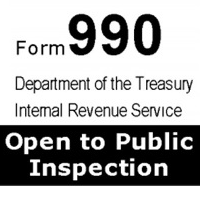Resisting FOIA Request, IRS Ordered to Pay Attorney’s Fees in Case Impacting Release of Federal Records
 (graphic: Patheos)
(graphic: Patheos)
A judge has ordered the Internal Revenue Service (IRS) to pay $239,400 in attorneys’ fees after the agency tried to deny a Freedom of Information Act (FOIA) request for electronic versions of records.
The judge’s rulings in the case, dating back to January, are seen as setting a precedent in support of requests for e-file data from the government and, consequently, may motivate the IRS and other federal agencies to overhaul its longtime method of releasing records, according to Natasha Lindstrom at TribLive. The rulings may also facilitate the tracking and analyzing of trends, both operational and financial, in the realm of nonprofit taxation.
Public.resource.org, a non-profit organization that provides the public with access to government documents, in 2013 sought Form 990s in electronic form from nine tax-exempt charities. The IRS has provided information only in an image format, making the documents, sometimes thousands of pages long, unsearchable unless they’re first retyped into a computer. About half the Form 990s are filed electronically, but even these have been available only as images.
The IRS had balked at complying with the FOIA request, claiming that it would cost $6,200 to develop new technology and train its employees in its use. It noted that it’s operating under a “sequestration level” budget and that such an expense would pose an “undue burden.” In January, U.S. District Judge William Orrick rejected that excuse.
Six months after prevailing in the case, Public.resource.org requested that the IRS pay it $367,000 in attorneys’ fees. The amount was calculated at 1.5 times its actual legal expenses, which was justified, explained the group, because its lawyers had worked pro bono on a case that is in the public interest. On Nov. 20, Orrick rejected the demand and ruled that the IRS must pay the actual attorney’s fees to Public.resource.org, according to Courthouse News Service.
The ramifications of the case are significant, according to Public.resource.org founder Carlo Malamud. “Now that there’s a court order, anybody can submit a Freedom of Information Act request for that type of e-file information,” he told TribLive in January.
-Danny Biederman, Steve Straehley
To Learn More:
IRS Charged $239,400 for Fighting FOIA (by Nicholas Iovino, Courthouse News Service)
Judge Orders Nonprofit Tax Form Release in Case against IRS (by Natasha Lindstrom, TribLive)
Judge Orders IRS to Deliver Documents (by Arvin Temkar, Courthouse News Service)
U.S. Spends 10 Years and $1 Billion to Digitize Immigration Forms … and Ends up with Just One (by Noel Brinkerhoff, AllGov)
- Top Stories
- Unusual News
- Where is the Money Going?
- Controversies
- U.S. and the World
- Appointments and Resignations
- Latest News
- Musk and Trump Fire Members of Congress
- Trump Calls for Violent Street Demonstrations Against Himself
- Trump Changes Name of Republican Party
- The 2024 Election By the Numbers
- Bashar al-Assad—The Fall of a Rabid AntiSemite






Comments